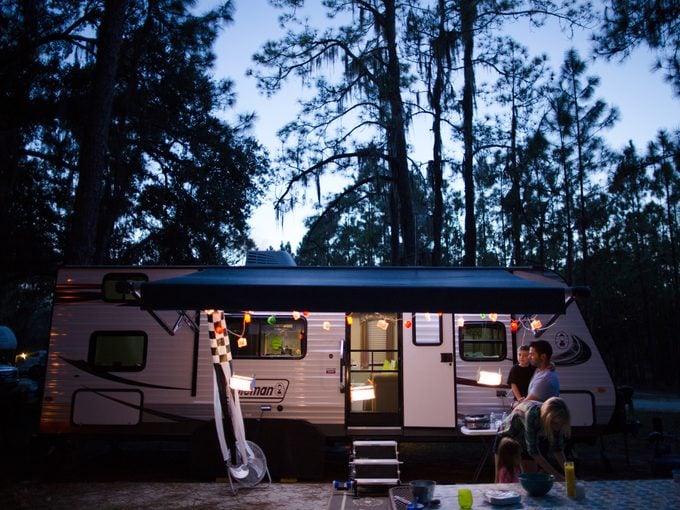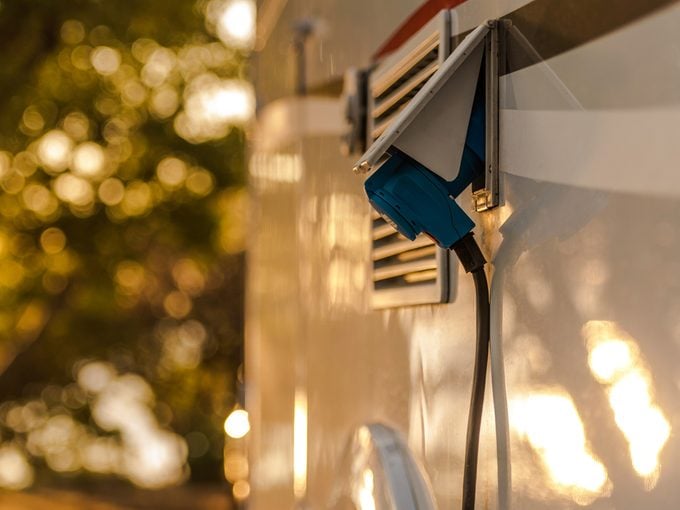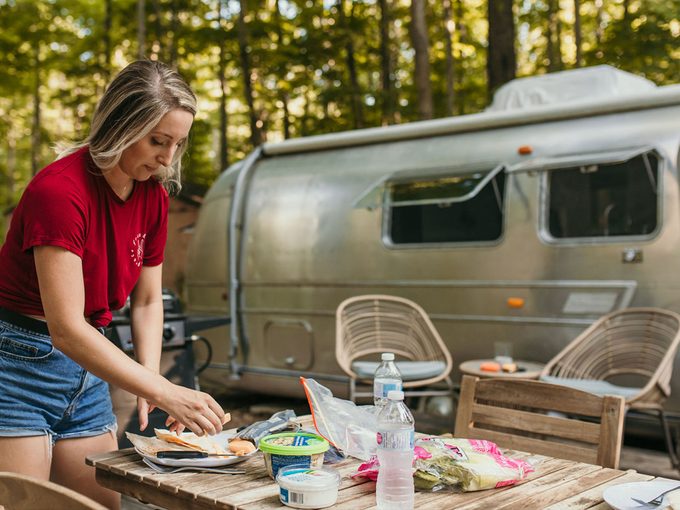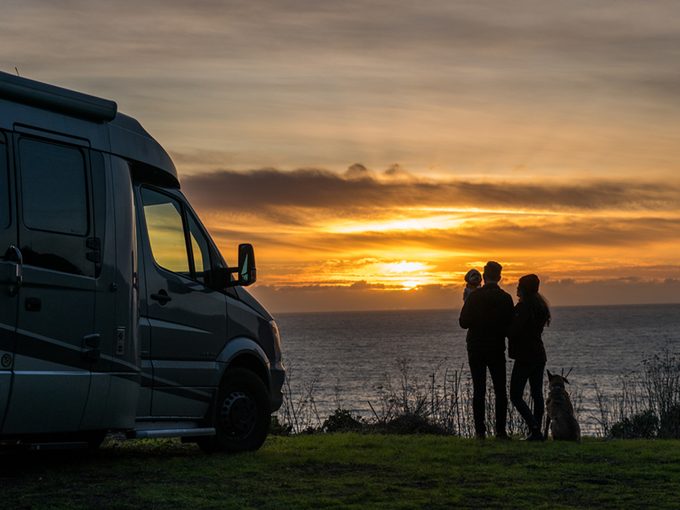10 Smart Tips to Make Your First RV Trip a Breeze
The world is your oyster when you can pack up an RV and hit the road. Follow these tricks for making the adventure as streamlined as possible.

Hotels are nice and tents are neat, but there’s something special about an RV. It blends the best parts of multiple types of travel—the comfort of your bed at home, the gorgeous scenery of a road trip and the nights around a campfire of tent camping. With an RV, you can explore the best parts of Canada, with no suitcases required. But if you’re new to RVing and feel a bit intimidated, these tips can help you take the road like a pro.
#1. Test drive your RV by renting first.
RV stands for “recreational vehicle” and travel trailers, motorhomes and park models of all different sizes fit under that umbrella. (This breakdown of models can help you compare!) Before you buy, consider renting one or two styles and see if you fall in love.
#2. Book your RV parks or campgrounds in advance.
Planning your route ahead of time and booking your accommodations accordingly, will save you the most money and allow you to pick the spots that have the amenities you want (think RV hookups, pools, playgrounds or fire pits).

#3. Choose sites that have an RV hookup.
Life will feel a whole lot easier with a campsite that provides full RV hookups with access to power and running water. If you’re new to RVing and feeling intimidated by the thought of RV hookups, rest assured it’s simpler than it seems. When you rent an RV, you’ll receive a tutorial specific to your model that will show you the ropes.
#4. Arrive before dark.
If you’re just learning how to set up your RV, avoid doing it in the dark. It could mean you drive less each day than you might prefer, but it will alleviate stress in the long run.

#5. Plan and prep some meals ahead of time.
One of the perks of RV travel is you have a fridge and freezer with you everywhere you go. To cut down on food prep time when you’re on the road, cook up some freezer meals (think chili, beef pot pie and breakfast burritos) in advance. It also eliminates the need to purchase all your meals on the road, saving you time, and more importantly, money!
#6. Make a plan for getting online.
Before you head out on the road, decide if you want to use WiFi (often free at some campgrounds and spaces like cafes and libraries), mobile data or a satellite. Satellites tend to get the best coverage, but they’re also the most expensive. Click here for more internet access tips.

#7. Pack as light as possible.
Where you go, your stuff goes too, which is a great perk of RVing. But the heavier the load, the more you’ll pay in gas. Follow this packing list so you have the necessities but don’t overpack.
#8. Buy gas off the main roads.
Typically, gas on busy highways will be more expensive than less-frequented pit stops. Try to plan your route so you can fill your tank off the main roads. You might also want to bring along one or two gas canisters that you can fill up when you find a good deal.
#9. Learn to level your RV.
Properly levelling your RV will help to keep it in good working order. This video can help you learn how to level your vehicle.

#10. Take time to look around you.
Remember: RV travel is an adventure and you’re making memories to last your whole life. Try not to worry too much about WiFi access or following your schedule to an absolute T. Instead, live in the moment, keep your eyes open to your surroundings and say yes to opportunities when they arise.
For more useful tips for renting or buying an RV, planning a route and more, visit GoRVing.ca—a free resource for newbies and pros alike.




